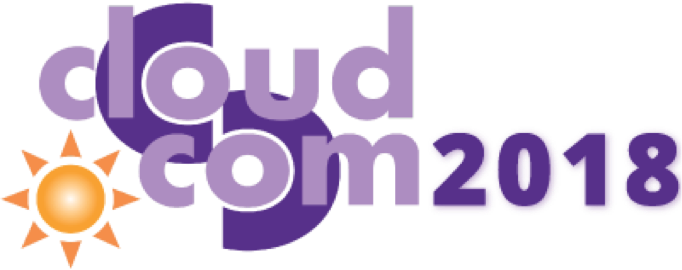Mon Oct 15, 2018
Designing Scalable and Secure Microservices by Embracing DevOps-as-a-Service Offerings

Description
This tutorial examines the fact that simply re-engineering applications into microservices does not remove the operational complexity and risk of failure. In the Cloud era, as applications grow by adding more services, security enforcement and dynamic resource allocation become significant challenges. At scale, these challenges can be addressed with autonomicity. Through automation, microservices are equipped with the ability to continuously control the underlying infrastructure, thus turning into services that can be programmatically harnessed. However, traditional monitoring is deemed ineffective for decomposed and highly dynamic microservices deployed over shared execution environments. On the other hand, finer service granularity means more moving parts and hence an increased complexity of auto-scaling, more points of failure and more possibilities for severe privacy violations.
To overcome these challenges and take full advantage of the rapidly evolving microservices landscape, we will introduce the Unicorn DevOps-as-a-Service platform, which provides software teams of all sizes with a powerful toolset to simplify and speed up the development and management of scalable and secure applications over multi-cloud environments.
Target Audience
- Academic researchers
- Software developers
- DevOps Engineers
- Anyone with a programming background and with some exposure to cloud environments, software version control, and Unix operating systems
Tutorial Program
|
Tutorial (Part A) - Room Kantara |
14.00 - 15.30 |
|
Tutorial (Part B) - Room Kandara |
16.00-17.30 |
Tutorial Structure
Section 1 - Introduction to Microservice Architecture Paradigm
|
Section Description (Program Part A) |
This section provides a comprehensive overview of the microservice architecture paradigm, the association of microservices with the DevOps culture principles and the enablement of microservices through containerized execution environments. A brief introduction to the concept of containerization is provided along with an overview of where containers sit on the virtualization stack and how they fit in the cloud computing paradigm. The container runtime of choice is Docker, as the industry current golden standard, and Docker Compose will also be used to ease microservice configuration and showcase service portability. |
|
Learning Outcomes |
- Have a clear sense of what are microservices and why this paradigm constitutes a revolutionary shift in software development. - Understand how Docker orchestration tools (e.g., Docker Compose) can be used to automate microservice deployment on public cloud offerings |
Section 2 - Technical and Hands-on
|
Section Description (Program Part B) |
This section lectures the audience on the design of applications following the microservice paradigm and enabled through the Docker container runtime on public cloud offerings(Google Cloud, OpenStack). To ease microservice development, popular open-source frameworks (e.g., Spring Boot, nginx, Netflix OSS) for web applications will also be introduced. During this part, light is shed on the open challenges that arise when designing and deploying secure microservices at scale that prevent developers from fully embracing continuous delivery in their software development pipeline. This part of the tutorial is also intended as a hands-on experience and welcomes any members of the audience to use their laptop and the provided software artifacts to run the presented examples. |
|
Learning Outcomes |
- Acknowledge the principles that designate applications as microservices and understand the process flow in designing web applications as microservices with the use of popular frameworks (e.g., Spring Boot, nginx Netflix OSS) from the open-source ecosystem. - Leverage Docker and its toolset (e.g., dockerfiles, docker hub) to containerize and run web applications as microservices |
Section 3 - UNICORN DevOps-as-a-Service
|
Section Description (Program Part B) |
This section introduces the audience to the Unicorn DevOps-as-a-Service platform which is developed as a unified solution to overcome the open challenges previously presented.Specifically, we will extend in a few simple steps the exemplary microservices introduced in the previous section with the Unicorn feature set to show developers how they are able to simplify and speed up the design and management of scalable, secure and portable microservices over containerized cloud execution environments. |
|
Learning Outcomes |
Acknowledge the existence of the Unicorn DevOps-as-a-Service platform offerings to speedup the design of secure and scalable microservices and ease the runtime management of large-scale and distributed deployments. |
GitHub Repository of the tutorial
https://github.com/UCY-LINC-LAB/CloudCom2018-Tutorial
Venue
10 December 2018, 14.00-17.30, Hilton Cyprus, Nicosia, Cyprus
Registration Fees
|
Workshop Only IEEE Member |
€ 180
|
|
Workshop Only Non-IEEE Member |
€ 220
|
UNICORN: A Novel Framework for Multi-cloud Services Development, Orchestration, Deployment and Continuous Management Fostering Cloud Technologies Uptake from Digital SMEs and Startups
http://unicorn-project.eu/
UNICORN has received funding from the European Union’s Horizon 2020 research and innovation programme under grant agreement No 731846
CloudCom 2018 details